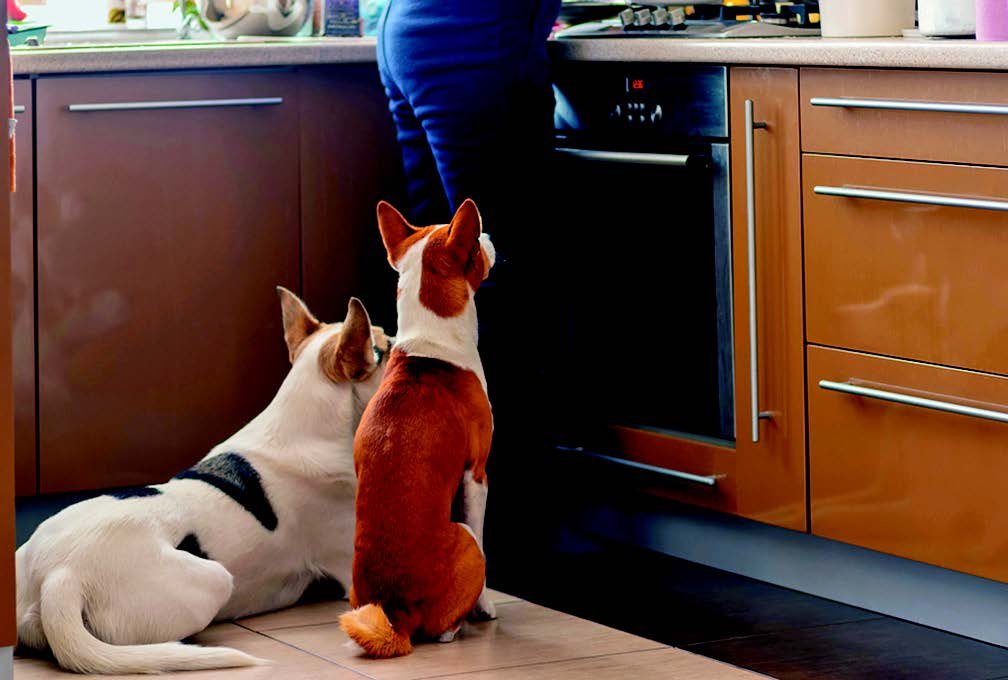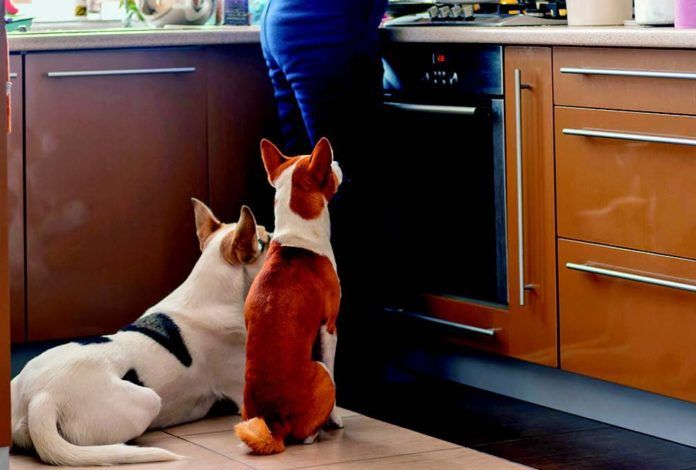
© yurikr | Bigstock
For puppies and older dogs especially, and also for dogs who are pregnant or nursing, meals prepared by you in your own kitchen can be extremely dangerous.
Puppies are highly sensitive even to minute nutrient deficiencies. What might be a subclinical deficiency in an adult dog could be a frank nutrient deficiency in a young pup. We’ve seen puppies fed homemade diets brought to our hospital so malnourished that not only were they small for their age, but they also had crooked and deformed bones. Sometimes, inadequate nutrition resulting from being fed homemade food even caused them to have seizures.
Geriatric dogs, too, can be particularly sensitive even to small nutrient deficiencies. And the longer the nutrient shortfall continues, the less capable the dog will be of bouncing back once the deficiency is diagnosed and corrected. And with pregnant or nursing dogs, a short-term nutrient imbalance could compromise their young for life.
Even for a healthy adult dog who is neither young nor old nor taking care of a litter, a nutrient deficiency can have a cumulative effect over time that might not be easily reversed.
We get why you might want to cook your dog’s food yourself. Nothing says “attentive” and “loving” like “homemade.” Add to that the fact that store-bought diets have so many scary-sounding (but perfectly safe and nutritious) ingredients — byproducts, the chemical names of vitamin supplements added to the food — and it becomes even clearer why so many people would rather take the time to prepare their dog’s food than buy it.
But all commercial diets available at the supermarket and at pet food stores must legally contain certain amounts of nutrients to be marketed as “complete and balanced.” Recipes for homemade dog food found on the Internet and in magazines and books, on the other hand, are often lacking in essential nutrients. It’s not surprising when you consider that it’s nearly impossible to meet all of a dog’s nutrient needs without adding concentrated nutrient supplements.
If, despite the risks, you choose to prepare your dog’s meals
We strongly advise you to buy commercial food if your dog is less than one year of age, in the later years or life, or pregnant or nursing. But if you want to make your dog’s meals yourself in her less vulnerable middle adult years, make an appointment with a veterinarian who is board-certified in nutrition. She or he will use computer software to put together the right mix of ingredients and supplements to produce a properly nutritious diet for your pet.
The diet will be very precise. For instance, instead of specifying a cup of chicken, as a dog food recipe on the Internet might do, it will say something like, “x ounces of skinless, white-meat chicken.” (A cup, after all, will change depending on how hard you press down on the chicken as you add it to the measuring utensil. But the weight of something can only be one thing.)
It’s important to follow the recipe exactly. Even swapping out one meat for another can dramatically change nutrients and calories.
Note that it’s not easy to stick to the recipe. In one survey we conducted, more than 80 percent of the dog owners who came to our veterinary nutritionists for homemade recipes made changes to the diets, potentially rendering them unbalanced.






Would you recommend giving a dog Milk Thistle for sub-clinical high liver enzymes?
Denamarin didn’t seem to make a difference.
I am cooking my dog’s
Food and adding nutrients. I only use low fat chicken and a little Turkey with vegetables and brown rice. I also give her cottage cheese not a lot. Low fat treats. Her liver levels have come down and she had only been on this diet for 1 and a half months. Can you advise a good home diet?